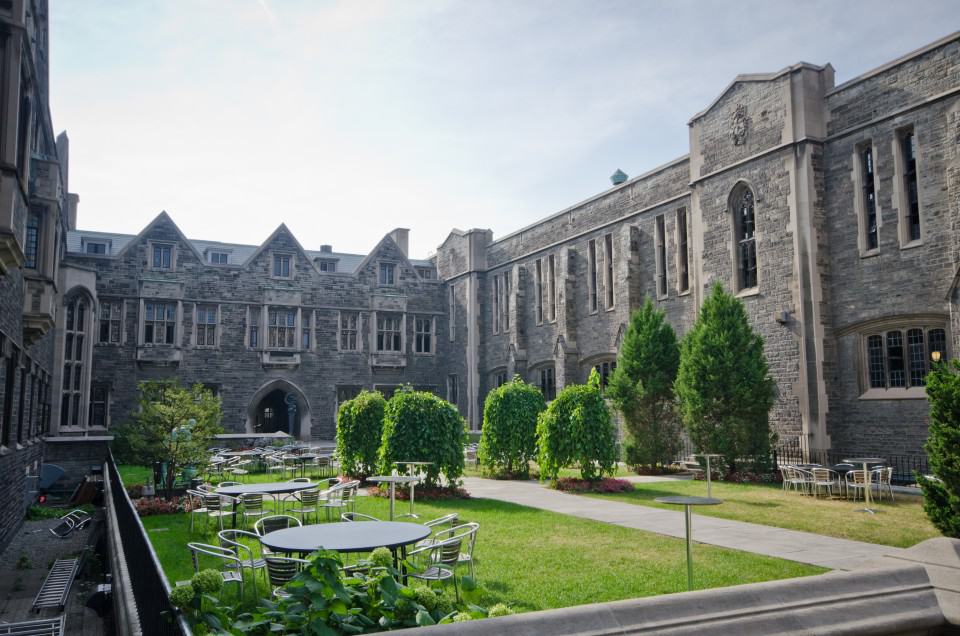Hart House has finally eliminated a deficit of nearly $1 million. However, cuts caused by deficit reductions are adversely affecting student clubs. Last February, Hart House requested a 5.2 per cent fee increase from the Council on Student Services (COSS), which regulates increases to student fees. The University of Toronto Students’ Union-led COSS, which is dominated by student representatives, to reject the fee increase. They cited concerns that students were already responsible for paying a significant amount of Hart House funding.
Earlier last year, Hart House programming was cut by 18 per cent, causing the many student groups that Hart House supports to tighten their budgets.
Last year, Bruce Kidd, warden of Hart House, told The Varsity that he hoped to increase the use of Hart House by outside parties, as a means to raise revenue. He said that this would not heavily influence student groups who need to book space, and that outside parties tend to book space several months in advance, whereas student groups tend to book only a few weeks in advance. Thus their booking timelines do not interfere with one another.
Kidd stated: “While Hart House had to struggle with a planned deficit in 2012-2013, through cost trimming, aggressive revenue generation, and the good fortune of a milder winter (that significantly reduced heating costs), we managed to bring the financial year to a close without a deficit. We have a balanced budget planned for the current (2013–2014) fiscal year.”
Despite Kidd’s assurances, some student leaders say that there were definitely changes that made running their programming significantly more difficult than it had been in the past. The booking of space, which was in part dedicated to non-student groups, made the usual procedures of student clubs much more difficult than they normally would be.
A major change made during the past year was that all musical clubs at Hart House were asked to move their meetings to Monday evenings. There are six musical groups currently operating out of Hart House, meaning that it is now almost impossible for a student to be involved in more than one. Elizabeth Laushway, executive secretary of the Hart House Chorus, spoke with The Varsity stating, “The decision to move all of the musical groups to Mondays was made so that they would have more room to book external events on other nights, and it’s made Hart House less accessible, since people now have to choose between the half a dozen musical groups we have and, realistically, only commit to one.” Laushway feels that this kind of rescheduling of student groups to accommodate outside parties is unfair to students, who should be prioritized. “I’ve known people who are musically inclined in more than one way and who have had to choose between between say the Jazz Choir and the Hart House Chorus,” she said.
Karthy Chin, member of the Literary and Library Committee didn’t find that her committee was affected by the cuts instituted last year, as most of their events are held within the Hart House Library, a space dedicated to their use. “It was a real problem for other clubs who needed to book space though,” noted Chin, “only certain rooms could be booked on certain dates and there were a lot of problems getting the space that was needed.”
Kidd explained that funds had to be diverted to pay for the upkeep of Hart House itself. He went on to say that the building is in desperate need of maintenance work, with the existing heating, wiring, and plumbing dating back 100 years. Hart House commissioned a team led by Baird Samson Neuert to conduct a study and will advise on how to renew the infrastructure of the historic building in a green and sustainable fashion. Kidd stated that once the plans have been finalized, a major fundraising campaign will be launched that will hopefully cover the cost of the necessary maintenance.
Louis Tsilivis, secretary of the Hart House Debate Committee, feels that more can be done to support the student groups at Hart House, but that the fault for lack of funding fell not with Kidd, but the UTSU’s February decision not to increase Hart House’s budget. “Clubs and committees at Hart House are really feeling the strain of the UTSU’s decision not to increase the ancillary fee, as Hart House requested. Warden Kidd has been doing a laudable job of trying to manage the difficult position that he has been put in, and trying to ensure that student programming is not affected adversely by this,” said Tsilivis.
Munib Sajjad, president of the UTSU, took issue with Tsilivis’ characterization, expressing surprise at being the only union targeted: “Both the Graduate Students’ Union and the Association of Part-time Undergraduate Students at the University of Toronto, the Scarborough Campus representative and the Mississauga Campus representative voted against increasing the fee” he said, adding that Hart House did receive a cost of living fee increase last year. Ultimately, Sajjad said: “We believe that Hart House does wonderful work creating community on campus and work well with Hart House throughout the year on numerous initiatives.”


